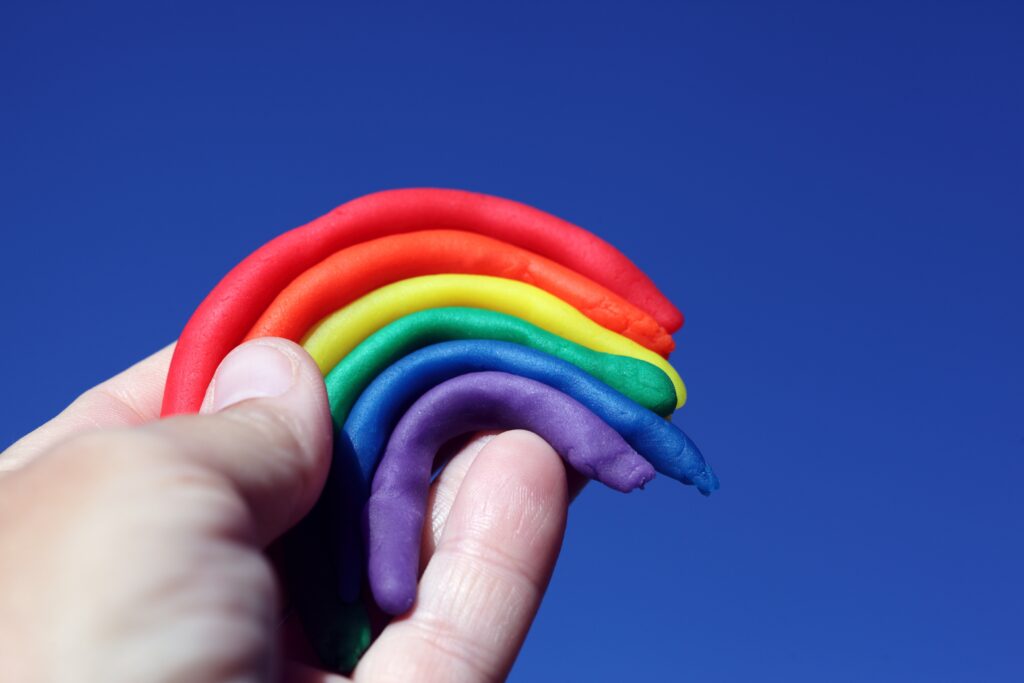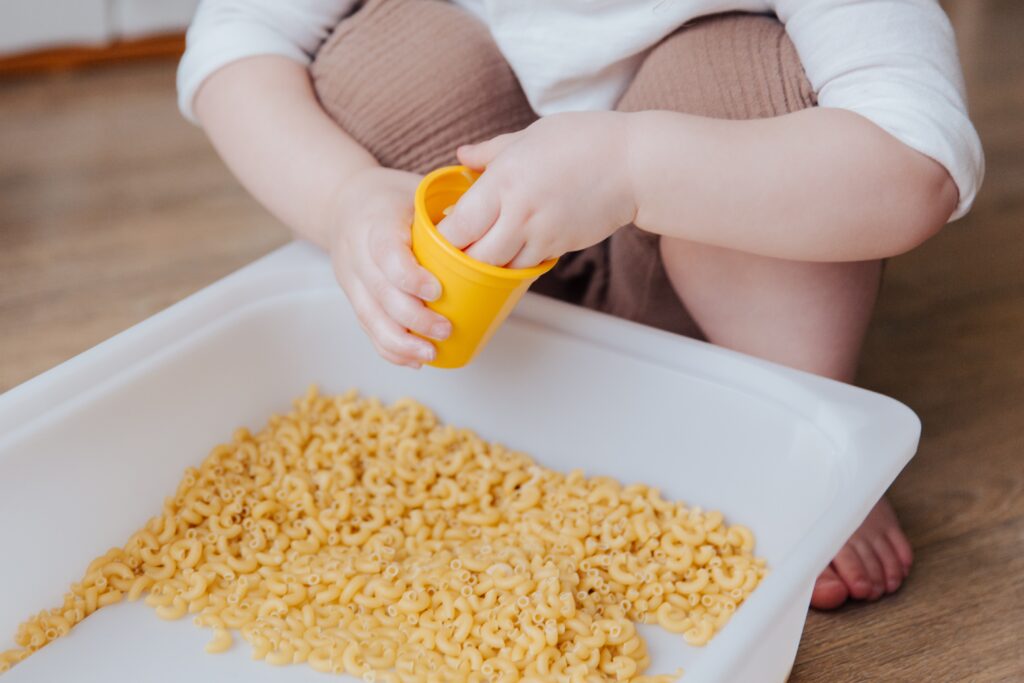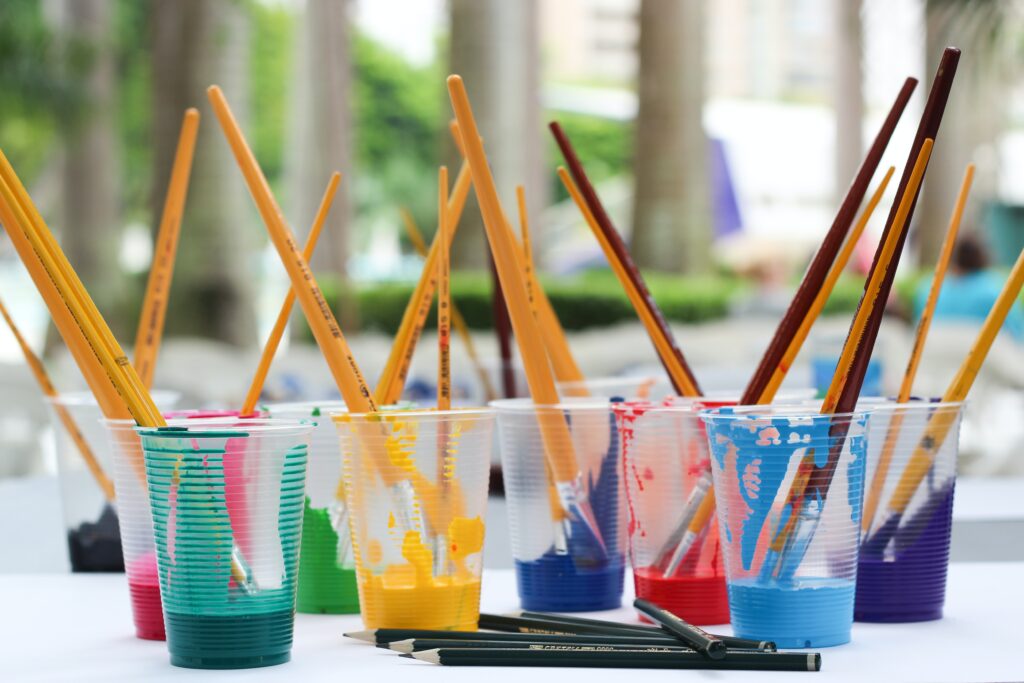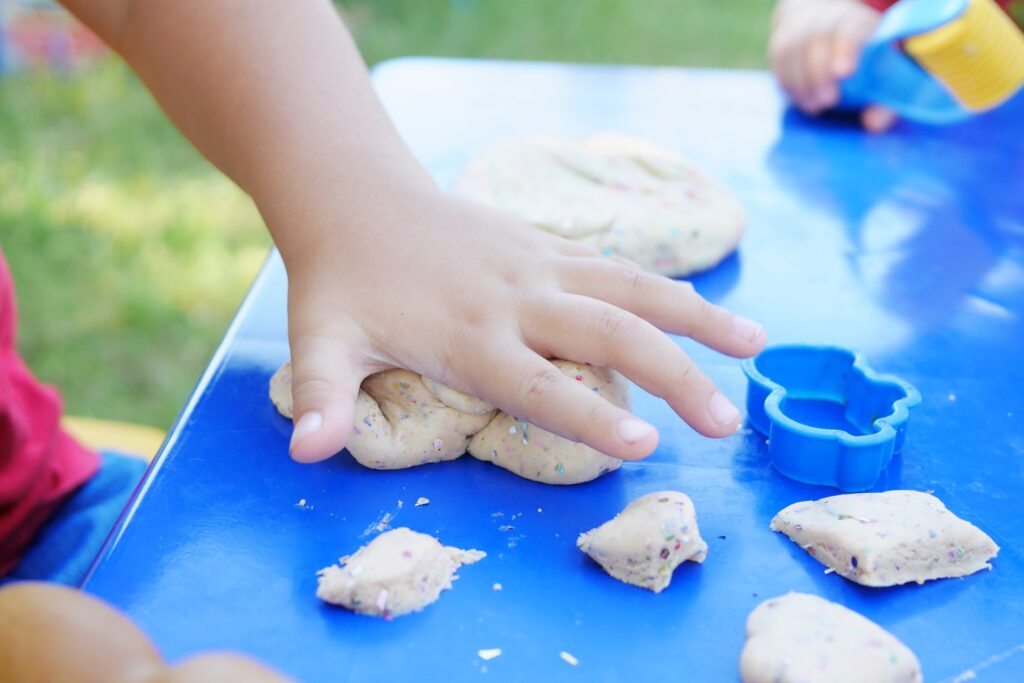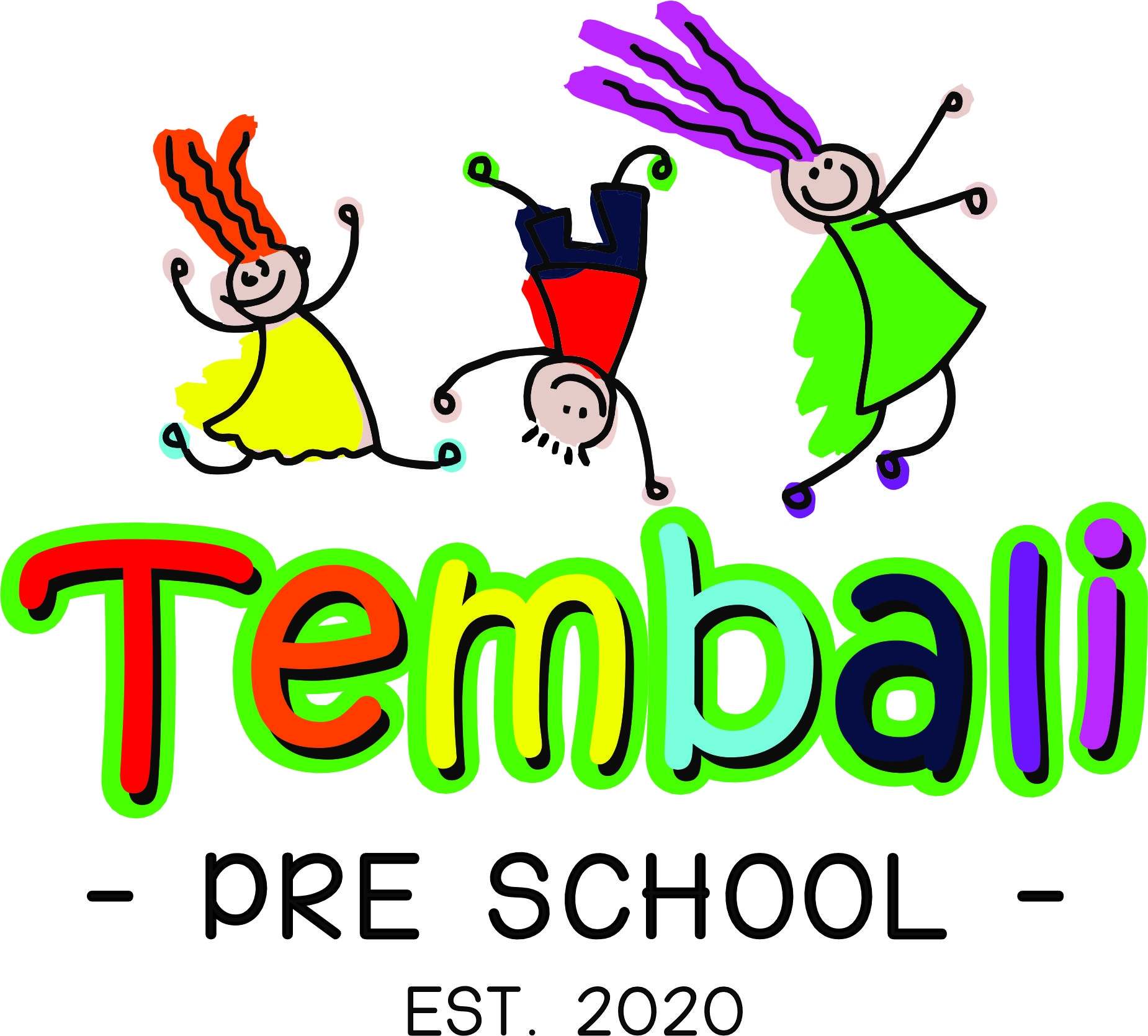PLAY BASED LEARNING
I tried to teach my child with books
They gave me only puzzled looks.
I tried to teach my child with words
They passed them by often unheard.
Despairingly I turned aside
“How shall I teach this child?” I cried.
Into my hand they put the key
“Come” they said, “play with me.”
(Source unknown)
Tembali Preschool follows the philosophy and curriculum of Play Based learning. Young children learn through their interaction with their environment, something they do through the use of all their senses i.e. seeing, hearing, touching, tasting and smelling.
Experimentation within a safe environment is vital for learning at a young age. A child will respond automatically to a new experience and will store this experience in their brain.
Young children recognise connections with what they already know when faced with a new experience and then adapt what they have learnt to accommodate this new situation. In time they will begin to use what they have learnt to solve problems they come across.
This development cannot happen without regular opportunities to experience things through their senses. What a child learns through using their body will always stay with them.
In time they will learn to focus on a task and apply what they have learnt and be able to gauge possible outcomes. Children at an early age learn through play and imitation and not through ‘’lessons’’.
Structured play is important and necessary however a child must be given plenty of opportunity for free play, where experiments with what they chose rather than what is set out in front of them.
- Good nutrition, good sleeping patterns and a strong sense of being loved and secure are necessary for a child to make optimum use of their environment as their first “classroom”.
- Learning through play is the foundation of Tiny Treasures philosophy and through this we are able to give children the best possible chance to allowing them to experience and express themselves to their full potential.
- Areas of Learning and Development:
- Personal, Social and Emotional Development
- Physical development
- Visual & Auditory perceptual skills
- Literacy & Language
- Numeracy
- Play – gross & fine motor skills
- Expressive arts and design
- Life skills
